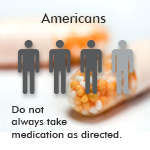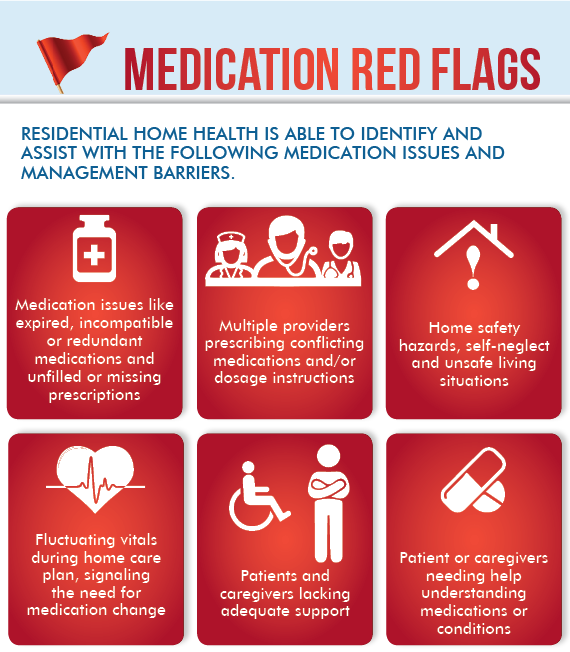 Did you know that nearly 3 out of 4 Americans admit that they do not always take their medication as directed? Taking your medications, or even vitamins, correctly can be a challenge at any age. As you get older and your regimen becomes increasingly complicated, the very medications selected to keep you healthy and independent can actually pose a big health risk if skipped or taken incorrectly.
Did you know that nearly 3 out of 4 Americans admit that they do not always take their medication as directed? Taking your medications, or even vitamins, correctly can be a challenge at any age. As you get older and your regimen becomes increasingly complicated, the very medications selected to keep you healthy and independent can actually pose a big health risk if skipped or taken incorrectly.
Here are five tips to help your loved one manage medications successfully at home:
- Check the expiration date.
Expired medications are not like spoiled milk; it is rarely obvious that meds have expired, yet the effect of taking them can be disastrous. Every month or two, collect all of the medication bottles in the home, including prescription medications as well as over-the-counter. Check expiration dates to make sure medications have not expired. If they have, dispose of them and be sure to replace as needed. - Keep a journal.
Sometimes seniors will stop taking a medication because they think it is causing a specific side effect, or “not working.” Have your loved one journal his or her medication consumption and any side effects each day so you can review and make sure that all medications are accounted for and there are no concerning side effects or omissions that should be addressed with the doctor. - Stick to one pharmacy.
If all of your loved one’s medications are issued by one pharmacy, this will add an additional layer of professional review to his or her regimen; oftentimes prescriptions will come from multiple providers, so the pharmacy can help identify medications that do not mix and can help set reminders that a prescription needs to be refilled. Pharmacists can also answer questions and help you understand how a medicine works and the proper way to take it. - Set reminders.
Help your loved one set alarms on his or her phone or even a multi-alarm watch to help remember when to take different medications each day. This helps avoid medication omission and maximize drug efficacy. You can also help pick a convenient time of the day to take medicine, like right before lunch if it’s on a consistent schedule. Electronic pill dispensers are another way to regulate dosages and timing. - Stay organized.
Use a pill box or similar system to help organize pills and schedule dosages. Some extra work to prepare properly can make the rest of the day or week a breeze and helps avoid omission or incorrect dosing of medications.
Your loved one’s medication regimen is an important piece in keeping him or her healthy at home. Residential Home Health’s medication management initiative is just one area of focus that helps identify issues and ensure our patients are set up for success at home.

When considering the option of home health care, keep in mind that you have the right to choose which company is the best fit. View our patient guide to learn more about home health care and to see questions the Centers of Medicare and Medicaid Services recommend you consider when making this decision.
{{cta(‘3c6c120f-633f-45f1-83fc-f3d273d38174’)}}

